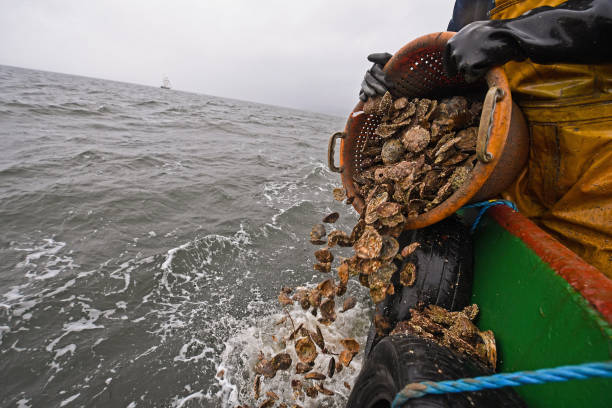UK’s conflict with the EU is taking on new dimensions following its exit from the bloc and the two sides are seeking retaliatory measures. The latest issue to become a point of contention is the ban on the import of oysters to EU countries, which has re-ignited the hostilities between the two sides.
EU Ministers Seek to Limit British Exports to EU Countries
The UK withdrawal from the EU without gaining any special privileges has damaged the activities of various businesses in this country. By signing a recklessness agreement with no benefits for the British people, Boris Johnson has endangered their livelihood and that of many firms and industries.
The EU has recently banned the import of bivalve molluscs harvested from the UK Class B waters. Class B dehydrated water is less clean than Class A water. It is said that the export of molluscs from British Class A waters, which is basically cleaner water, to the EU is still allowed, but given the economic war between the two sides, it is unlikely that the EU will ban imports from these waters in the near future.
The Government Seeks Retaliatory Action Against the EU
At the meeting in Brussels on 1 January, EU ministers announced a ban on the import of oysters from the UK. While the European Commission has said the ban applies to all third countries for health reasons, Boris Johnson’s government has said it is seeking immediate retaliatory measures. The new EU decision is making life difficult for many British fishermen whose income comes from exports to the EU. This is why the UK Government has decided to retaliate against this restriction. The UK seeks to limit the import of mineral water and several food products from the EU, thereby forcing it to reverse the ban.
The government may limit the import of European bottled water in retaliation for the EU’s refusal to end the cancellation of oyster imports from the UK. The British cabinet is considering what steps to take next, including proposals for a water war. Referring to the import of potato seeds and other items, these sources said a ban is being considered in this respect to stop Europeans from selling their products over here.
Boris Johnson is Toying with the Lives of British Fishermen
Although shellfish exports make up a small portion of Britain’s national income, it is the source of income for many fishermen. The EU decision creates a financial crisis for many who will not be able to support themselves. Reports show that although the oyster export market is a small one, worth 12 million pounds per year, it is still the livelihood of many fishermen. British fishermen who sell oysters have called on the government to take urgent action to lift the EU ban on their exports to the 27-member bloc. who have been fishing in the same southwestern English waters for generations. They sell their catch to companies such as Sailors Creek Shellfish, which has seen a 99% drop in business according to Sky News. Martin Laity, who owns the firm, said he is looking for direct answers from the government.
A few days ago, the British media reported a 68% decrease in British exports to the EU as compared to a similar period last year. According to experts, the decrease was due to the Covid-19 and Brexit double whammy. Following UK’s secession from the EU on 1 January and a trade agreement between the two, food exports from the UK are now subject to the strictest controls; the EU is even allowed to inspect trade products exported from Great Britain to Northern Ireland. Boris Johnson’s trade agreement with the EU in the last days of last year has not benefited the British people so far and many industries and factories have been affected by the agreement, which they want to cancel to rejoin the EU. They believe that Boris Johnson was pursuing Tory interests with this agreement and did not actually act in the public interest. Therefore, many British people want his resignation as Prime Minister of the UK and the beginning of the process of UK’s re-membership in the EU.

